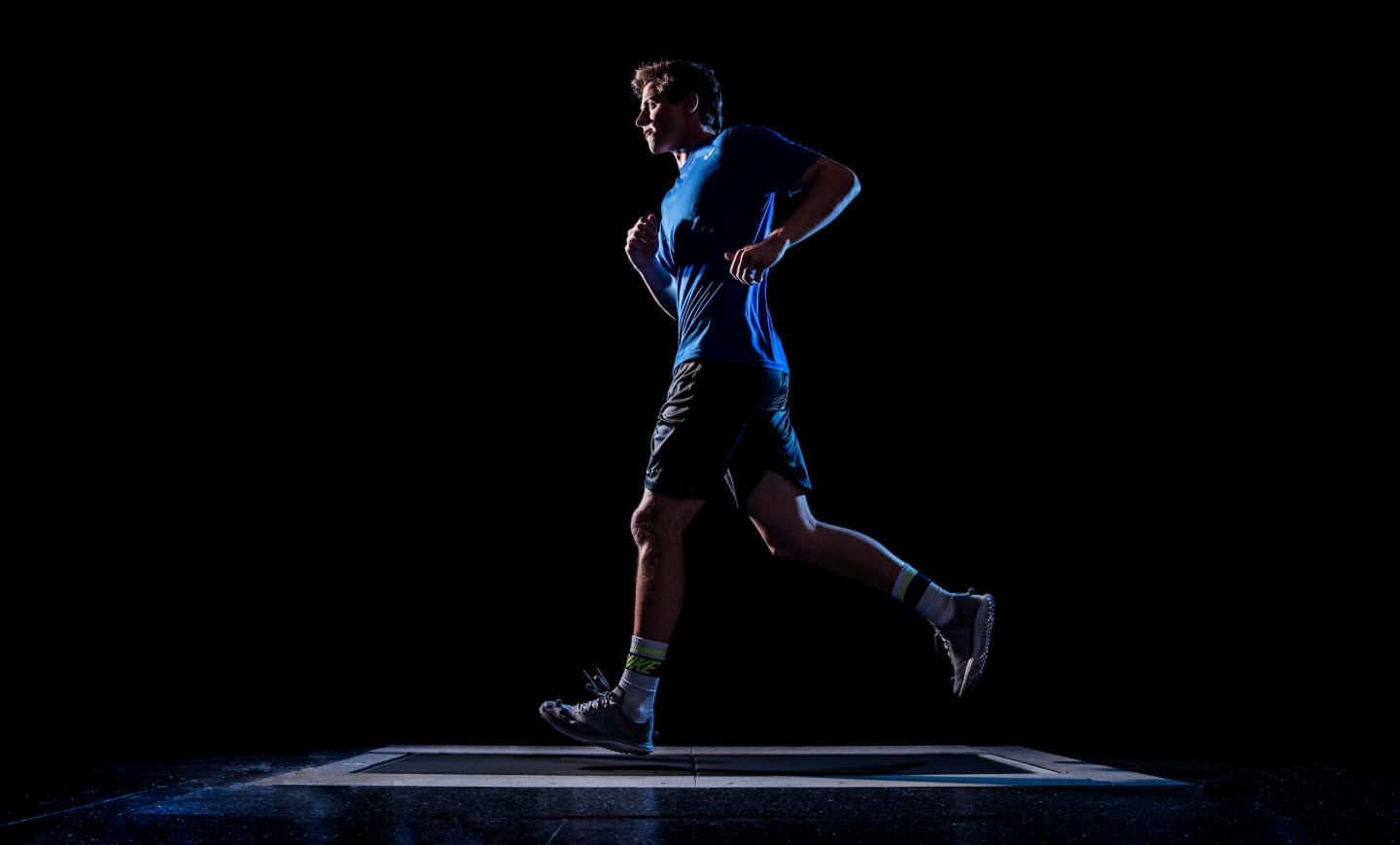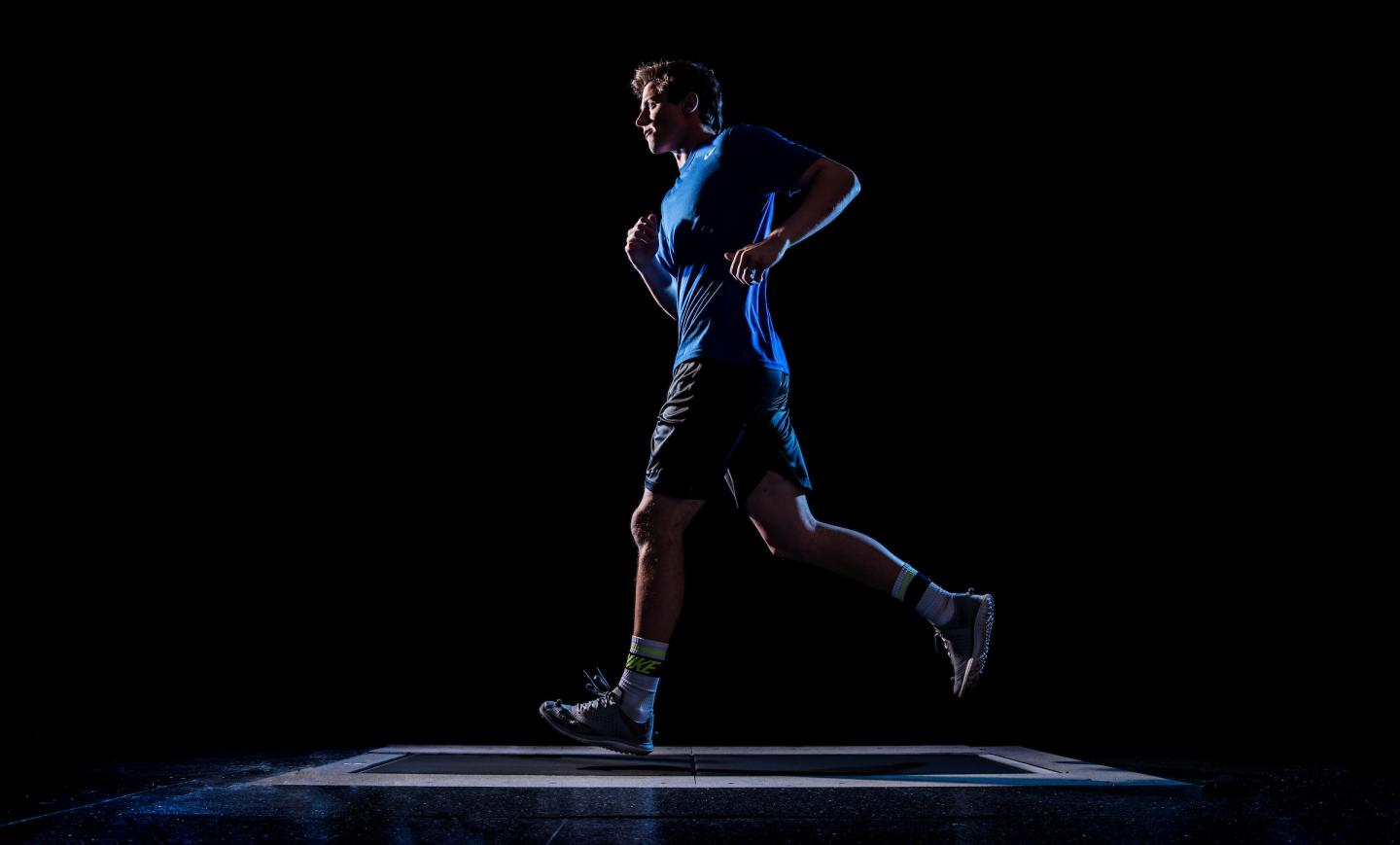
Credit: BYU Photo
USA Track and Field consultant Iain Hunter and U.S. Olympian Jared Ward have a message for runners: Don't mess with your stride.
A new study by the duo of BYU professors finds the stride length people naturally choose is the best for them, whether they are experienced or inexperienced runners. That means whatever shape you are in — marathon warrior or weekend jogger — stick with what you're doing.
"Don't worry about changing your stride length," said Hunter, a professor of exercise science at BYU. "You should just leave it alone or you're going to use more energy in the end."
The study, published in the International Journal of Exercise Science, measured the energy use of 33 runners while carrying out various strides during a 20-minute run. Of those runners, 19 were experienced runners (meaning they averaged at least 20 miles a week) while 14 were inexperienced runners (people who have never run more than 5 miles in a week).
During their runs participants used five different stride lengths: their natural stride, and then strides of plus and minus 8 and 16 percent of their normal stride. Subjects maintained the adjusted strides thanks to the assistance of a computer-based metronome, which beeped each time their foot should've hit the treadmill. Meanwhile, researchers measured the energy output of the runners with masks that recorded the amount of oxygen used.
The results found both the experienced and the inexperienced runners were most efficient when they were using their preferred stride. Thus, athletes and coaches don't need to alter a runner's stride length when economy is the main concern.
"Just let it happen; it doesn't need to be coached," Hunter said. "Your body is your best coach for stride length."
Hunter and Ward would know — both are experienced runners and both have trained and researched high-level distance runners for years. Ward, of course, finished 6th in the marathon at the 2016 Olympics and recently finished in the top 10 of the 2017 Boston Marathon.
Ward, an adjunct faculty in the BYU statistics department, said the takeaway is similar to that of elite runners: Be very careful if you're trying to alter your stride if efficiency is your main concern.
"Many people are advocating for various 'optimal' running forms, but this study shows even novice runners shouldn't try to run any different than their body naturally does," he said. "Enjoy running and worry less about what things look like."
Hunter's expertise has led him to carry out biomechanical analyses for USA Track and Field for the past 14 years. He is headed to London this August with Team USA for the World Championships, where he will help film and analyze U.S. athletes during competitions.
Kelly Lee, a BYU undergraduate, and James Tracy, a former BYU steeplechase athlete and a current grad student, were also coauthors on the paper.
###
Media Contact
Todd Hollingshead
[email protected]
801-422-8373
@byu
http://www.byu.edu
Original Source
http://news.byu.edu/news/running-experts-youve-already-hit-your-stride





